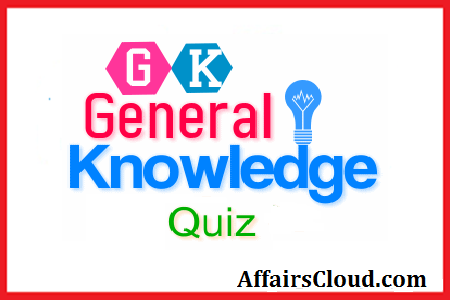Hello Aspirants. Welcome to Online General Knowledge section in Affairs cloud, which is important for all the competitive exams. We have created Some questions related to Indian GK(Indian Polity) !!!
- The Citizenship Act of 1955 provides how many ways to acquiring citizenship ?
1.4
2.8
3.5
4.7
5.None of theseAnswer – 3.5
Explanation :
Indian citizenship can be acquired by birth, descent, registration(2) and naturalization. - The Indian Constitution deals with the citizenship from Article 5-11 under
1.Part I
2.Part II
3.Part III
4.Part IV
5.None of theseAnswer – 2.Part II
Explanation :
Citizenship provides rights such as right to vote, and are also subjected to duties or obligation, such as paying taxes. Citizenship is covered in Part II of the constitution, within articles 5-11. - The Preamble has been amended ……………………… so far by 42nd Constitutional Amendment act
1.5 times
2.3 times
3.2 times
4.Only once
5.None of theseAnswer – 4.Only once
Explanation :
The Preamble has been amended Only once so far by 42nd Constitutional Amendment act - ………………. became first Viceroy of India
1.Lord Warren Hastings
2.Lord Macaulay
3.Lord Canning
4.Lord Morley
5.None of theseAnswer – 3.Lord Canning
Explanation :
the Proclamation of 1858 announcing the assumption of the government of India by the Crown referred to Lord Canning as “first Viceroy and Governor-General”, none of the Warrants appointing his successors referred to them as ‘Viceroys’ - The Right to Property(Article 31) was deleted from the list of fundamental rights by the ……………..
1.44th Amendment Act, 1978
2.42th Amendment Act, 1970
3.46th Amendment Act, 1972
4.40th Amendment Act, 1987
5.None of theseAnswer – 1.44th Amendment Act, 1978
Explanation :
By the 44th Amendment to the Constitution, the right to property was removed as a fundamental right and instead, a new provision was added to the Constitution i.e. Article 300-A. - Article 21A declares that the State shall provide free and compulsory education to all children at the age of ……………..
1.6 to 12 years
2.5 to 10 years
3.6 to 14 years
4.5 to 15 years
5.None of theseAnswer – 3.6 to 14 years
Explanation :
According to Section 3(Article 21A) of The Right of Children to free and compulsory Education Act, 2009, “Every child of the age of six to fourteen years shall have a right to free and compulsory education in a neighbourhood school till completion of elementary education - Which article prohibits the employment of children below the age of 14 in any Organization ?
1.Article 17
2.Article 23
3.Article 33
4.Article 24
5.None of theseAnswer – 4.Article 24
Explanation :
No child below the age of 14 years shall be employed to work in anyfactory or mine or engaged in any other hazardous employment (Article 24) - Mandamus mean …………………
1.We command
2.To be informed
3.By what authority or Warrant
4.To forbid
5.None of theseAnswer – 1.We command
Explanation :
Mandamus is a Latin word, which means “We Command”. Mandamus is an order from the Supreme Court or High Court to a lower court or tribunal. It is a a judicial writ issued by the Supreme Court or a High Court as a command to an inferior court - Some of the Gandhi’s ideas were included as Directive Principles in which articles ?
1.Article 40,44, 45 and 50
2.Article 41,42,43 and 44
3.Article 40,43, 47 and 48
4.Article 41,44,50 and 51
5.None of theseAnswer – 3.Article 40,43, 47 and 48
Explanation :
Some of the Gandhi’s ideas were included as Directive Principles in Article 40,43, 46,47 and 48 - The Parliament generally meet in …………….. sessions in a year
1.3
2.4
3.2
4.5
5.None of theseAnswer – 1.3
Explanation :
The Parliament generally meet in 3 sessions in a year.- Budget Session(longest)
- Monsoon Session and
- Winter session(shortest)
AffairsCloud Recommends Oliveboard Mock Test
AffairsCloud Ebook - Support Us to Grow
Govt Jobs by Category
Bank Jobs Notification



